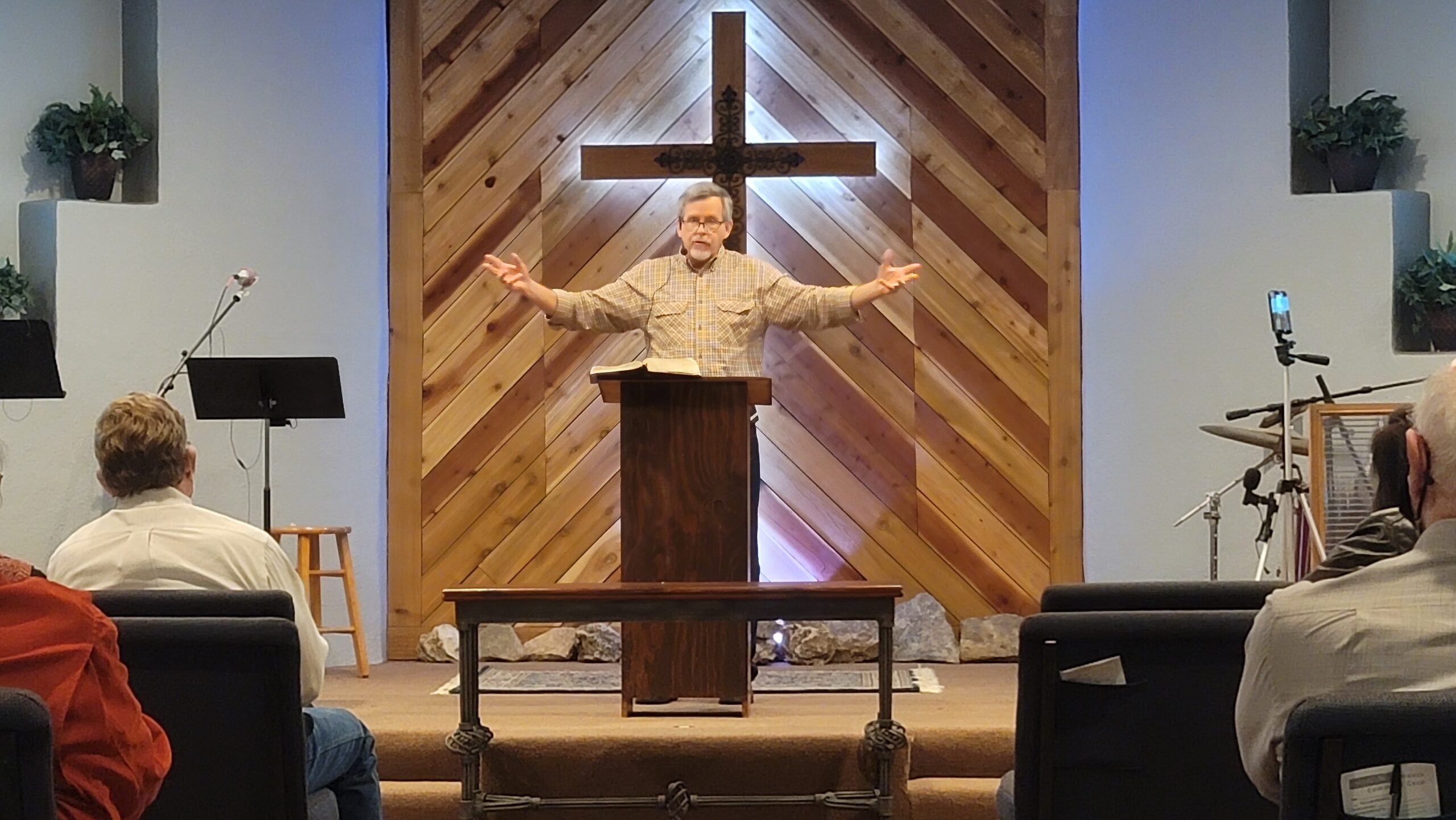Introduction
The itinerant ministry of Jesus, with all His miracle-working power, was all that His men knew. In His presence for over three years they were made to see with their own eyes the lifestyle of witness-with-wonders evangelism even before they could understand their Master’s messages. But Jesus took time to make sure that they knew how to use signs properly. “Do what I do” was and is the most effective strategy for educating Jesus followers in evangelism… especially when miracles are involved. Robert Coleman puts it this way:
Amazing as it may seem, all Jesus did to teach these men his way was to draw them close to himself. He was his own school and curriculum. Coleman, Robert E. (2006-04-01). Master Plan of Evangelism, The (pp. 37-38). Baker Publishing Group. Kindle Edition.
Through His example they were witnesses to His way of bringing the gospel to the world. Although they did not realize it at the time of their teaching, they were students of the principles that must be honored by anyone that would be effective when using miracles for the King and His kingdom. In the closing of chapter nine we will see that the gospel, advanced using amazing and gracious displays of healing power, is going to move most effectively when (1) there is a right going, when (2) there is a right giving, and when (3) there is a right getting.

Figure 1 – Jesus healed a man that had been born blind and thereby provided evidence for the shocking truths that He has been teaching (John 9:1-11).
Right Going and Giving (Acts 9:32-35)
32 Now it came to pass, as Peter went through all parts of the country, that he also came down to the saints who dwelt in Lydda. 33 There he found a certain man named Aeneas, who had been bedridden eight years and was paralyzed. 34 And Peter said to him, “Aeneas, Jesus the Christ heals you. Arise and make your bed.” Then he arose immediately. 35 So all who dwelt at Lydda and Sharon saw him and turned to the Lord.
Verse 32 picks up after the brief account of Saul’s conversion. It came to pass is Luke’s way of unpacking the how and why of Acts 9:31.
Then the churches throughout all Judea, Galilee, and Samaria had peace and were edified. And walking in the fear of the Lord and in the comfort of the Holy Spirit, they were multiplied. (Acts 9:31, NKJV)
In that verse we hear that the churches had peace and were edified. The peace was twofold. First, it is the work of the Holy Spirit; He metes out a peace that surpasses understanding (Philippians 4:7). Such a peace would be a comfort of the Holy Spirit. Second, it is no doubt a consequence of converting the leading critic — Saul of Tarsus. The one who had waged war with the people of God had become a Jesus follower himself. But how were they edified?
In the New Testament edification is the building up of the commitment and character of saints; it can be the result of teaching or revelation that causes the hearer to be strengthened in their faith and more mature in their service of God (1 Corinthians 14:4, 17). This had been happening in Jerusalem for over two years (AD 33 – 35). Now Peter is bringing the ministry of teaching to the saints dispersed by recent persecution. He is going through all parts of the country teaching. While the ministry of teaching or preaching is not explicitly mentioned, it is implied that Peter is teaching and preaching as he goes. As a shepherd he is going to where the flocks have been moved by recent persecution; when he arrives on the scene he teaches them. This is what he has been called and trained to do:
- Peter Has Been Trained to Teach (Mark 3:14; Acts 4:13) – Then He appointed twelve, that they might be with Him and that He might send them out to preach,
- Peter Has Been Charged to Teach (John 21:15-17; Acts 5:19) – He said to him the third time, “Simon, son of Jonah, do you love Me?” Peter was grieved because He said to him the third time, “Do you love Me?” And he said to Him, “Lord, You know all things; You know that I love You.” Jesus said to him, “Feed My sheep. …”
- Peter Has Been Changed to Teach (Luke 24:45) – And He opened their understanding, that they might comprehend the Scriptures.
The Principle of Right Going: The Mission, Missionary, and Ministry Must be His
The first principle of effective ministry involving miracles is that the person through whom the work is done must have been sent. Carts are placed before horses and woe follows when unconverted people attempt to use Heaven’s power without the permission of Heaven’s Prince. For at least two reasons, if Jesus is not involved, using miracles in ministry will not work. First, the work done will not be rewarded and the workers will not be recognized (Matthew 7:21-23). Second, the hellions being exorcised are able to distinguish between genuine practitioners of the Christian faith and powerless soothsayers. Simply making mention of Jesus’ name will not work when Jesus has no intention of working through the person for His own glory and the good of His own people (Acts 19:11-16). There will be no genuine miracle apart from genuine mission.
Philip the Evangelist, under the leading of the Holy Spirit, has already come through this region preaching in all the cities till he came to Caesarea (Act 8:40). As Peter was serving in Lydda he found a certain man named Aeneas (praiseworthy; praise). Luke tells us that the man had been bedridden eight years.
The healing power present in Peter does not require his voice. His shadow was enough to effect healing. So then, why did he feel it necessary to speak to the man? During his time with Jesus the former fisherman had seen many miracles. On some occasions, preceding the miracle, there were words spoken by Jesus that were aimed at helping the audience understand the meaning of the miracle. When the sense and significance of the miracle were present with the work it became more than a miracle; it became a sign (John 11:41-42).

Figure 2 – On 2025-01-19 a few people from Compass Church went to an assisted living facility to bring the gospel, worship, and encouragement. They went in Jesus’ name.
What Jesus began to do in the flesh he continues to do in the Spirit through surrendered people. He continues to do the work for His own glory and the good of His own people. When miracles are going to be used in ministry the minister must recognize the purpose of the power that runs through him.
The Principle of Right Giving: Give God the Glory
The second principle says that miracles must always make much of God and give more force to the argument for following Jesus. When there is going to be a healing that actually helps the cause of evangelism the evangelist cannot get away from the goal of giving God all the glory. While the miracle may serve to give credibility to the minister and his ministry it must ultimately be used as a means for magnifying the Son of Man, as a platform for promoting Jesus, as a sign pointing toward the Savior, and a reinforcement of the requirement to repent and believe the gospel.
Peter gives the glory away when he says, “Jesus Christ heals you.” He uses the miracle of making a man well to make the Master well known. And the desired effect is achieved:
So all who dwelt at Lydda and Sharon saw him and turned to the Lord. (Acts 9:35)
The So of Acts 9:35 translates a conjunction that ties the action of healing in Jesus’ name (Acts 9:34) to the reaction of surrounding peoples (Acts 9:36-43) at the sight of the restored man. After eight years his muscles would have been atrophied and the neurological framework required to support an activity like making a bed would have to be retrained. But after Jesus heals Aeneas he is in a state like he was before becoming paralyzed. He was a wonder to behold. So great was the transformation that, with the enabling that comes from the Spirit, believing in Jesus was the unanimous response.
Some may ask if it is really necessary to give God the glory. This is a good question. I believe that He should only get the glory for His part in ministry. The opening of Acts makes it clear that Jesus continues to have a part:
The former account I made, O Theophilus, of all that Jesus began both to do and teach, until the day in which He was taken up, after He through the Holy Spirit had given commandments to the apostles whom He had chosen, (Acts 1:1-2)
Jesus began his ministry with His men and continued to do ministry through them. The apostle Paul has this to say concerning the ministry of Christ’s ministers:
I have been crucified with Christ; it is no longer I who live, but Christ lives in me; and the life which I now live in the flesh I live by faith in the Son of God, who loved me and gave Himself for me. (Galatians 2:20)
Questions for Community Discussion
- How does Peter ensure that the focus goes to Jesus when Aeneas is healed?
- When people comment on how your life has changed since you started following Christ what do you typically say? Are you prepared to share your testimony with others?













